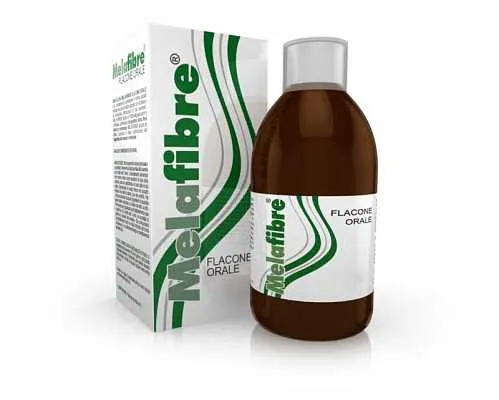Description
Melafibre Oral Solution
Ingredients
- Active ingredients: Dandelion extract, Aloe vera extract, Elm bark extract.
Dosage
- Recommended dosage: Take 10-15 ml orally, three times a day. Do not exceed the recommended dose.
Indications
- Indicated for: Melafibre oral solution is used for digestive support, liver health, and overall detoxification.
Contraindications
- Avoid use if: Pregnant, breastfeeding, or allergic to any of the ingredients.
Directions
- Directions for use: Shake well before use. Take the prescribed dosage directly or mix with water or juice.
Scientific Evidence
Melafibre oral solution contains dandelion, aloe, and elm extracts known for their hepatoprotective and detoxifying properties. Dandelion extract exhibits anti-inflammatory and antioxidant effects, aloe vera is gastroprotective and immunomodulatory, while elm bark extract may offer prebiotic and gut health benefits.
Studies in the Journal of Ethnopharmacology suggest dandelion extract can improve liver function and digestion. Aloe vera is researched for wound healing and gastrointestinal support, and elm bark extract for gut microbiota balance.
Additional Information
- Storage: Store in a cool, dry place away from direct sunlight.
- Caution: Consult a healthcare professional before use if you have any medical conditions or are taking medications.





